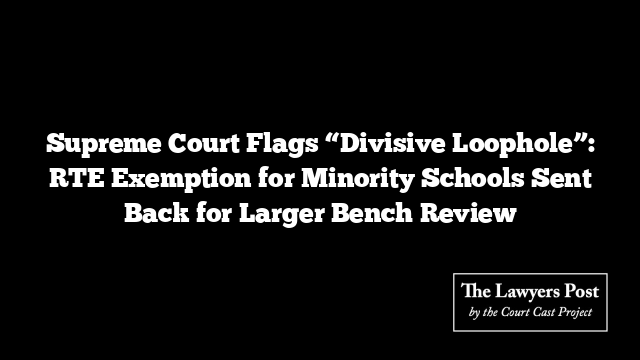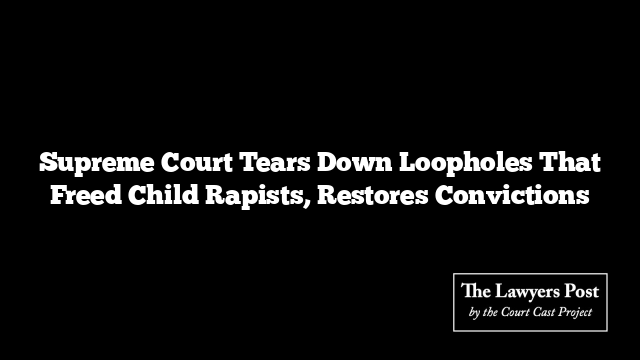The country’s top court has thrown sharp light on one of its own past rulings, questioning whether the exemption carved out for minority schools under the Right to Education Act (RTE) has morphed into a loophole eroding the promise of equal education.
A bench of Justices Dipankar Datta and Manmohan expressed serious misgivings about the 2014 Pramati Educational and Cultural Trust judgment, which had insulated minority institutions from RTE obligations. The judges warned that the exemption may have “unknowingly jeopardized” the vision of universal elementary schooling and instead hardened social divides.
According to the bench, the exemption has triggered a wave of institutions racing to secure minority status, not for preserving cultural or linguistic identity, but to avoid regulatory safeguards. “What was meant to protect freedoms has become a tool to bypass accountability,” the Court remarked, adding that such exemptions move the nation away from building an equal and cohesive society.
The present dispute revolved around whether the Teachers Eligibility Test (TET) applies to minority schools. While ruling that non-minority school teachers must qualify TET to retain their posts, the Court sent the broader constitutional question back to a larger bench.
The judges emphasized that Article 30(1) – which guarantees minorities the right to establish and administer their institutions – was designed to safeguard identity, not to create “parallel systems” that escape universally applicable norms such as teacher qualifications, infrastructure, and child protection.
The Court underlined that these requirements are not ideological impositions but basic necessities of quality schooling. “Autonomy cannot be a license to exclude or to operate without accountability,” the order noted.
Importantly, the bench dismantled the assumption that reserving 25% seats under RTE would dilute a school’s minority character. It pointed out that the quota can be satisfied by admitting disadvantaged children from within the minority community itself. “The fear of annihilation was misplaced,” the judges said, calling for a re-examination of the earlier verdict.
The absence of guidelines on what constitutes a genuine minority institution has, according to the Court, allowed the proliferation of schools exploiting the label. Some institutions, it observed, fail to provide even the basic entitlements guaranteed by the RTE, leaving children without infrastructure, trained teachers, or safeguards against corporal punishment.
The bench voiced concern that minority schools operate without common curricular standards, leaving students and parents in the dark about what is taught, and often detached from the broader national framework of learning.
Describing the fallout of Pramati as the creation of “enclaves of privilege at the cost of national developmental goals,” the Court referred four key questions to a larger bench. These include whether the earlier judgment requires reconsideration, whether the RTE Act truly infringes minority rights under Article 30(1), and whether the exemption was too broadly applied without examining provisions beyond the 25% quota clause.
The larger bench will now decide if the balance between minority autonomy and universal educational standards has been struck in the right place—or if the constitutional promise of inclusive schooling has been compromised in the process.





